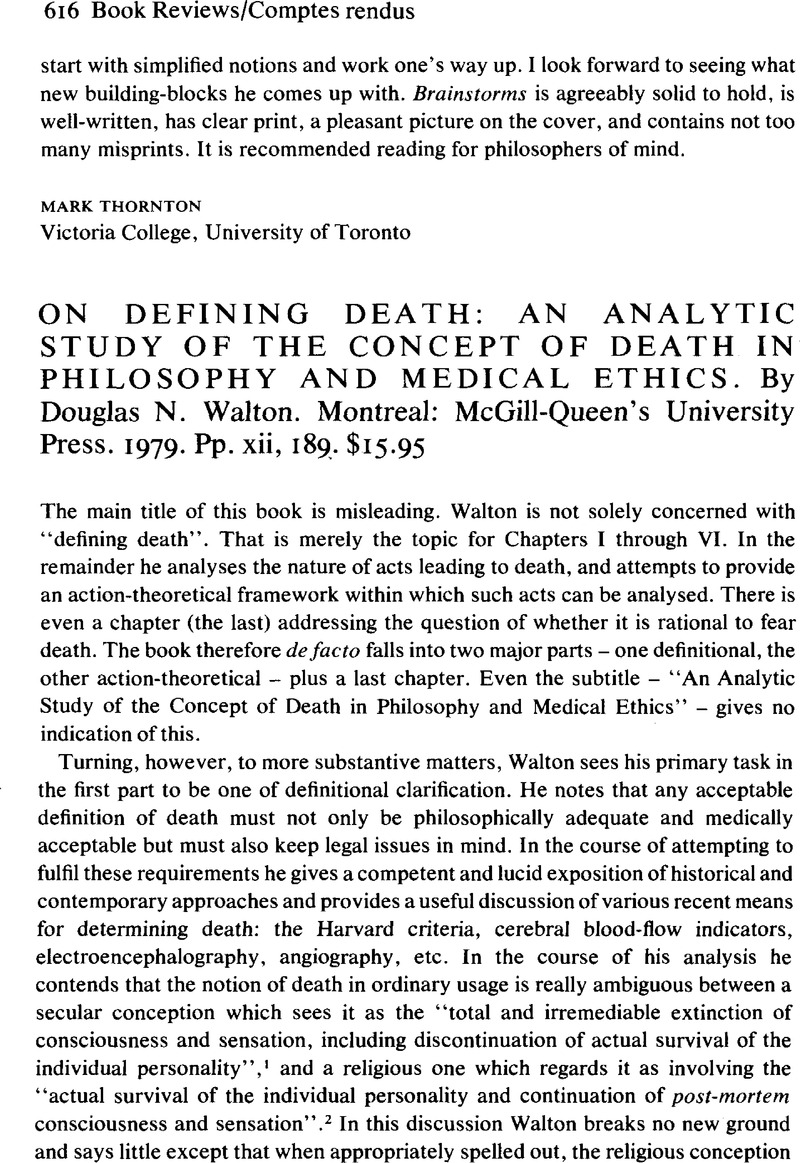No CrossRef data available.
Published online by Cambridge University Press: 05 May 2010

1 p. 41
2 Loc. cit. It is doubtful that this captures more than the standard Judaeo-Christian-Islamic approaches — and even here it is questionable whether Walton's characterization is correct. St. Thomas Aquinas, for instance, denied sensation after death because it requires the existence of a material body. That is why he suggested that our post mortem mode of apprehension would be non-sensible. Cf. Summa Theologia I: LXXX vii:8:r and Summa Contra Gentiles II:80-81:12 and II: 96, etc. The medieval Christian mystics, of course, e.g. Meister Eckhart and Ruysbroek were even more radical in their contentions.
3 p. 51
4 p. 61–62
5 p. 62
6 pp. 106 ff
7 pp. 107–117, 136–151 pass. etc.
8 p. 141 ff et pass
9 P. 142
10 Cf. 147 ff et pass.
11 pp. 149 ff et pass.
12 Compare the notion of mens rea in evaluating tort cases. Although this is merely a matter of law, the general principle seems to be the same.
13 pp. 96 f.
14 pp. 105 ff, 113 ff, etc.
15 p. 141.
16 p. 144
17 cf p. 120 n. 13
18 p. 149